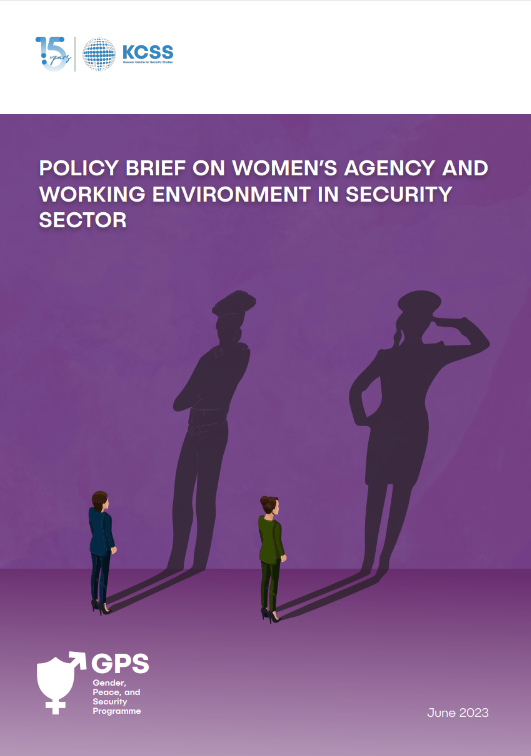25/06/2023

The primary aim of the current research is twofold. Firstly, we aim to measure the agency of women within the security sector and evaluate the extent to which it is inclusive and accommodating towards a gender perspective. Secondly, our research focuses on evaluating the capacity of institutions within the security sector to address gender-specific challenges and to use gender lens within the security sector.
Main findings of this report are:
-The low application rates of women to join security institutions, primarily stems from the perception that this field is predominantly for men. This perception affects women working in the sector who encounter a patriarchal mentality undermining their knowledge and expertise compared to their men counterparts. Moreover, women often confront the pressure to conform to societal expectations, compromising their personal freedoms and authentic selves;
-Women in the security sector are underrepresented in managerial positions and their ambition to pursue leadership roles is harmed by prejudice and perceived gender roles. The undervaluing and differential treatment of women within the security sector hinders their ambitions and self-esteem, leading to a belief that they are unfit for managerial positions. Moreover, gendered domestic responsibilities create substantial barriers for women in attaining managerial positions and assuming increased responsibilities within the security sector, hindering their career progression; This role significantly hinders women's ability to pursue extensive training programs necessary for career advancement, particularly in the military.
-There is a trend of underreporting when it comes to bullying, harassment, or discrimination cases among women in the security sector. As this was described as lack of ‘’reporting culture’’, it refers to the discouraging atmosphere that deters women from coming forward and reporting such incidents. As well as reporting mechanisms are perceived as non-confidential.
-There is reluctance to address issues of gender equality in Kosovo Police (KP), while there is continouos request from civil society organizations to cooperate and share data and insights regarding womens’ position and gendered working environment in KP.
Disclaimer:The development and publication of this document has been supported by the Kosovo Foundation for Civil Society (KCSF) program 'EJA Kosovo', co-financed by the Swiss Agency for Development and Cooperation (SDC), Sweden, and the Government of the Grand Duchy of Luxembourg. The content of this document is the responsibility of Kosovar Centre for Security Studies (KCSS) and does not necessarily represent the views of KCSF, SDC, Sweden or Luxembourg.